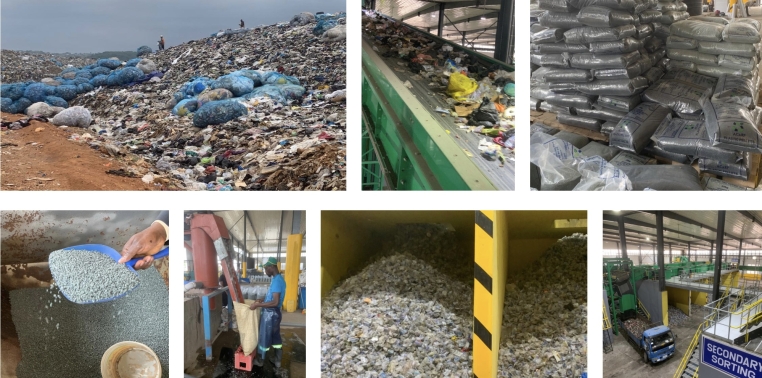Switzerland and Turkey have established a significant trading partnership, highlighting the importance of their cooperation in economic matters. Turkey holds the rank of 24th trading partner for Switzerland, indicating the substantial volume of bilateral trade between the two countries. In 2021, Swiss exports to Turkey amounted to CHF 1'93 billion (excluding precious metals, gems and antiques). These export numbers underscore Switzerland's economic significance as a key trading partner for Turkey, while also highlighting the value that Turkey places on Swiss goods and services. The cooperation between Switzerland and Turkey in the realm of trade not only contributes to their respective economic growth but also strengthens the overall diplomatic ties between the two nations.
As Turkey progresses economically, it faces numerous environmental challenges that require innovative technologies and solutions. One of the prominent environmental challenges in Turkey is air pollution. The country's rapid urbanization and industrialization have led to increased emissions from transportation, industrial activities and energy production. To address this issue, Turkey has been implementing measures such as improving fuel quality standards, promoting renewable energy sources and investing in public transportation systems. Additionally, the adoption of clean technologies like electric vehicles and renewable energy infrastructure is gaining traction in major cities.
Water scarcity is another pressing environmental concern in Turkey. With a growing population and increasing water demands, the country faces significant challenges in managing its water resources effectively. Sustainable water management practices, including water recycling, efficient irrigation techniques and conservation measures, are being encouraged to mitigate the impacts of water scarcity. Furthermore, the development of desalination technologies and wastewater treatment plants are being explored to meet the water needs of both urban and rural areas.
Turkey also grapples with waste management issues. The rapid pace of urbanization has led to a substantial increase in waste generation. To combat this problem, the government has implemented waste management regulations and initiatives to promote recycling, waste separation and the establishment of modern waste treatment facilities. Advanced waste-to-energy technologies are being explored to convert waste into usable energy, reducing both waste volume and reliance on traditional energy sources.
Renewable energy development is a key focus in Turkey's efforts to address environmental challenges. The country has significant renewable energy potential, particularly in solar and wind power. The government has implemented incentives and regulations to encourage the growth of the renewable energy sector, including feed-in tariffs, investment support and the establishment of renewable energy zones. Turkey aims to increase the share of renewable energy in its electricity mix and reduce its dependence on fossil fuels, thereby reducing greenhouse gas emissions.
In conclusion, Turkey faces several environmental challenges as it undergoes rapid economic development. However, the country is actively investing in and adopting innovative technologies to tackle these issues. By focusing on air pollution reduction, water resource management, waste management and renewable energy development, Turkey aims to build a more sustainable and environmentally conscious future. This presents numerous opportunities for Swiss companies to contribute to Turkey's greener future and engage in mutually beneficial collaborations
Related Reports
Sources
Federal Office for Customs and Border Security FOCS - Trading partners 2022






